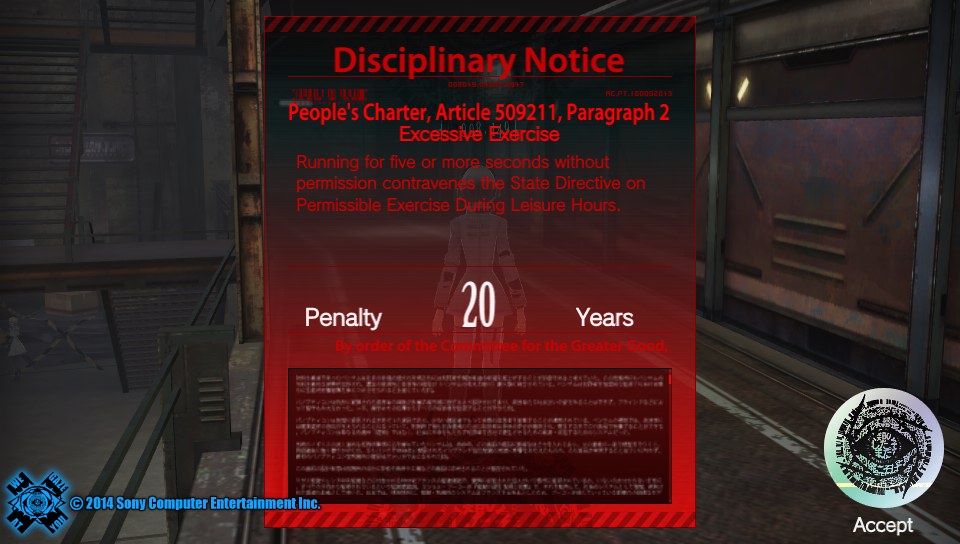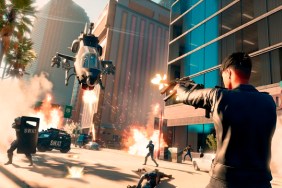Accessorize the apocalypse.
PlayStation Vita gamers make up perhaps the most underserved consumers in video gaming, particularly in Western and European markets where the handheld’s penchant for deep, entrenched Japanese gameplay mechanics haven’t exactly lit up sales charts. Even if PlayStation Vita units sell well in the far east, Sony has an undeniable problem on their hands if the powerful and highly engaging hardware can’t take off alongside PlayStation 4 as an accessory or a means to runabout Nintendo Wii U’s TV-freeing tablet GamePad controller.
To that end, I’d call the latest platform exclusive from Sony, JAPAN Studio, Shift, and Dimps an unfortunately distinct and obtusely unique distraction for both dedicated play sessions and on-the-go bursts of rapid action, though its remarkably murky setting, plot, and structure seem to wrestle with you almost for the sake of it. In one breath, Freedom Wars will either delight or subvert what you think about role-playing games whether you’re well versed in Japanese gaming or not.
I didn’t have to wait long to find myself imprisoned in the Panopticon network where individuals are issued prison sentences that reach up to and supersede a million years, with reduction of that sentence based on completing missions, various storyline activities, and playing multiplayer. The primary gameplay loop in Freedom Wars feels not unlike that found in Monster Hunter, where a set of weapons and abilities give you the ability to bring down big foes or combat lots of smaller ones. For the most part, I found Abductor-type enemies more satisfying as they tower over a battlefield, require coordinated teamwork, and offer more opportunities for use of the Thorn weapon everyone gets in-game.
Thorns allow for a few special abilities, but primarily they serve to get the player from one place to another extremely quickly or to attach to an enemy and deal damage. You can fire your thorn independently from your gun or sword, though using it to attach to an Abductor proves more thrilling thanks to the way it offers a risk-and-reward gambit for players eager to rescue fellow citizens and lower their prison sentence. Abductors themselves may have trapped citizens so firing the Thorn at a weakened boss inevitably opens up the opportunity for a daring rescue. In the end, this whip-like tool allows you to navigate the battlefield like Spider-Man and attach to enemies, attack with balletic style, or brutally yank a monster to the ground for added damage.
Still, it is exceedingly frustrating to fail an early story mission, only to have to return to a point far from your home base, reenter a dialog exchange, hear a fellow citizen’s request, and then launch into a mission that you can’t hope to complete because the enemy artificial intelligence knows to work as a team and attack objectives separately while the two story characters and three “assistants” on your side of battle only follow you around. This is the way Freedom Wars chooses to introduce the primary multiplayer mode that pits two teams of players against each other to rescue the most citizens.
In most video games, you tend to focus on what is fun and even an extended failure loop in this mission only results in about two or three minutes of gameplay after about as much navigating the world map. Freedom Wars would have done better to lessen the number of deep menus so early in the experience as they invariably add to the frustration felt in a sequence that doesn’t actually prove its importance. I eventually broke the mission parameters by taking the first citizen, hiding him near my base and the RRU unit that sends the citizen to safety, and then gathering the other two I needed to finish the match, defeating computer opponents along the way.
I also have to note that should you run to the aforementioned objective location, you could only wind up increasing your prison sentence and prolonging time you need to finish the game. In fact, while typing that last sentence, I left my PlayStation Vita idle and was hit with a Disciplinary Notice which states that according to the “People’s Charter, Article 712941, Paragraph 1 Persistent Inactivity” I failed to move for 180 seconds and therefore broke the State Directive on Subversive Activities During Leisure Hours, adding 20 years to my prison sentence.
And this was only the first two hours of Freedom Wars. For that reason I’m fully prepared not to play another second. I’m already living in a prison. We all are. It’s called the body and Leonardo Da Vinci got a decent diagram of it without hitting me over the head as to the mundanity of all existence. Still, I’m not cruel, so taking a break and rejoining the primary story campaign allowed me to discover that Japanese developers still manage to accomplish characterization in a way that endears you to total strangers. Ultimately, mission objectives force the player to choose between very distinct options of attack, either in rescuing a citizen or in defeating an enemy, though the resulting gameplay offers more satisfying gameplay when the target looms large and requires deft use of Thorn abilities.
Japanese staples like politeness and modesty abound in the game’s voice-acting, particularly as most characters come accompanied by their robotic Accessories, which eventually become the subject of tampering by nefarious citizens throughout the world. Each person you meet throughout your chosen Panopticon typically endears you to the plight of citizens and I was summarily impressed by the way most of Freedom Wars sticks to its design decisions. The game’s voice acting lends a layer of believability to interactions, though there are plenty of unvoiced characters too and they may have more interesting dialog trees and missions.
Between the branching and character-rich single player campaign, a wealth of mission choices, and gobs of loot to gather either to equip in new load outs or to customize the visual look of your hero or heroine, Freedom Wars doesn’t skimp on content. More importantly, it did force me to think a bit more critically about the narrative, which for some reason always surprises me on PlayStation Vita.
After a lengthy dialog exchange at a pub-style location, required to advance the narrative and open up new missions, my “Accessory” a gender-defined individual who may or may not be a robot asked if I would like to rest. Given my eagerness to return to combat and the menu option to decline, I did, and my denial of offered leisure resulted in a 10 year penalty to my sentence under People’s Charter Article 90128, Paragraph 1 Rejection of the Gift of Leisure. I can’t help but laugh at moments like these, though each drives me further and further away from actually wanting to play the game itself.
Many combat-focused video games managed to tease the player into the mindset of “just one more match” either to drive parents crazy or to keep young men like myself up until the very late hours, pulling triggers and laughing on voice chat. Call of Duty accomplishes this by persistently reinforcing positive feedback in the middle of combat itself, alerting a player to a completed challenge such that even a losing streak becomes a series of small rewards. Freedom Wars aims to do this, yet trips all over itself in the process. Thankfully, I’ll still want to pick up the PlayStation Vita, dust it off, and whittle away at the prison sentence after I finish this one.
Copy provided by publisher. Exclusive to PlayStation Vita.
-
Fully realized world and characters
-
Just a little depressing
-
More entertaining than California's prison system
-
Ethical questions about Accessories
-
Voice-acting and depth of dialog throughout your Panopticon
-
Continually receiving penalties adding to your prison sentence
-
... can be kind of funny
-
I'll never see the end of this game
-
Lengthy Japanese-style experience on a portable
-
May not be ideal for brief commutes
Freedom Wars
-
Freedom Wars #1
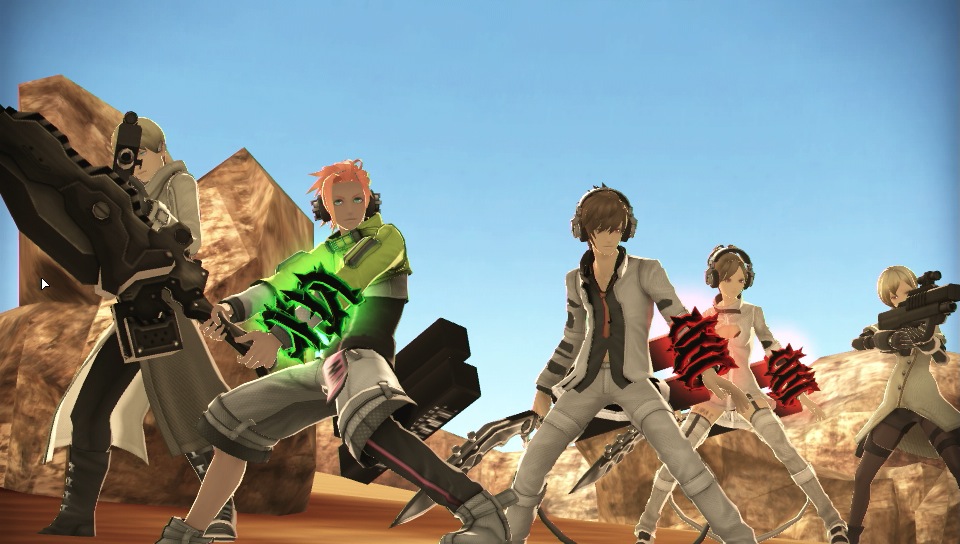 [Click for full-size image]
[Click for full-size image] -
Freedom Wars #2
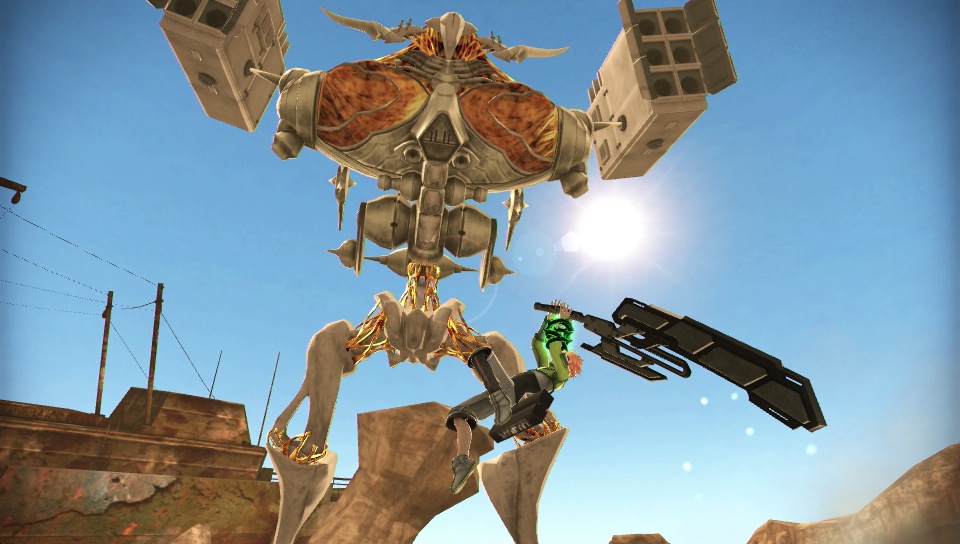 [Click for full-size image]
[Click for full-size image] -
Freedom Wars #3
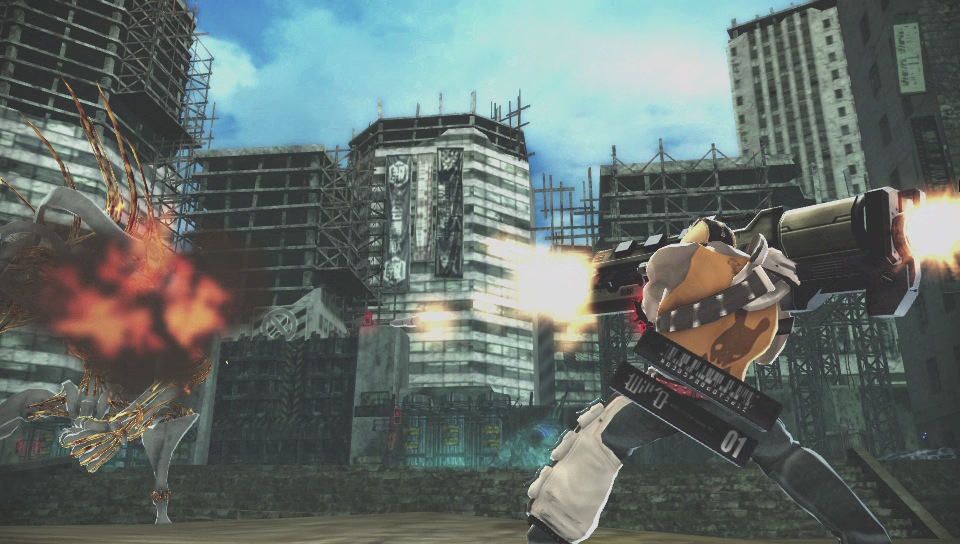 [Click for full-size image]
[Click for full-size image] -
Freedom Wars #4
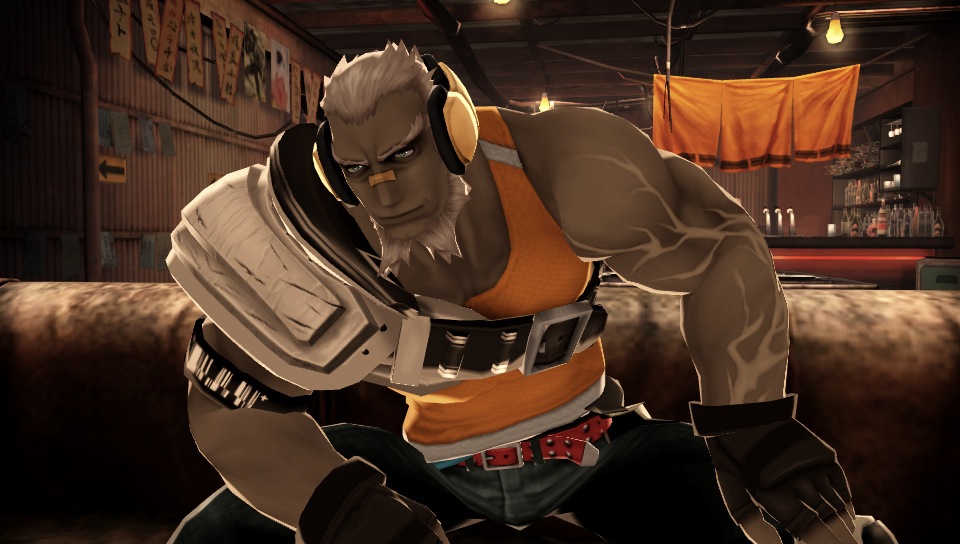 [Click for full-size image]
[Click for full-size image] -
Freedom Wars #5
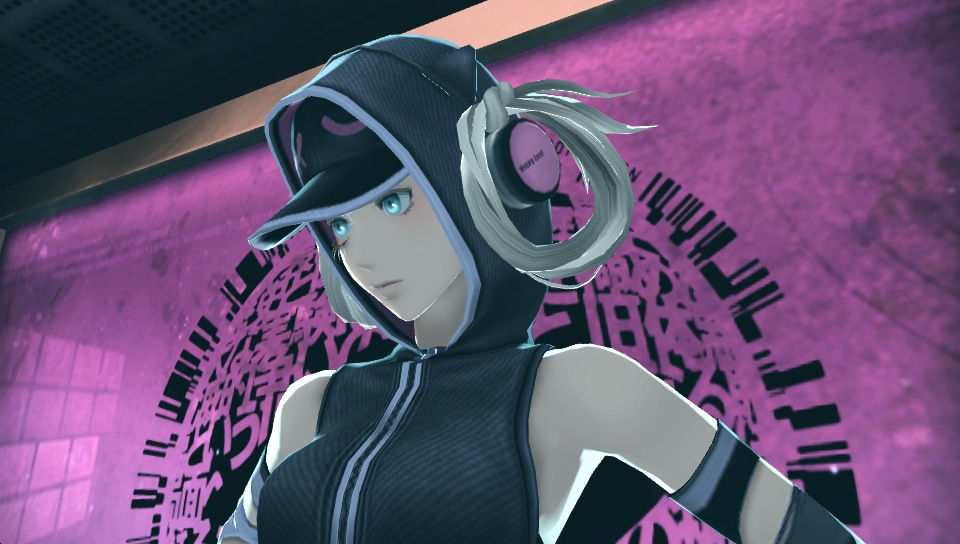 [Click for full-size image]
[Click for full-size image] -
Freedom Wars #6
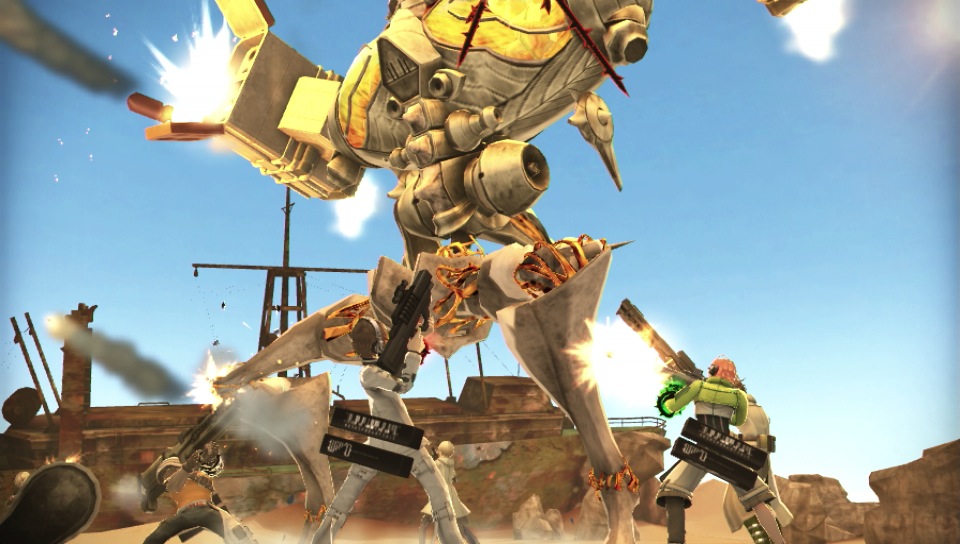 [Click for full-size image]
[Click for full-size image] -
Freedom Wars #7
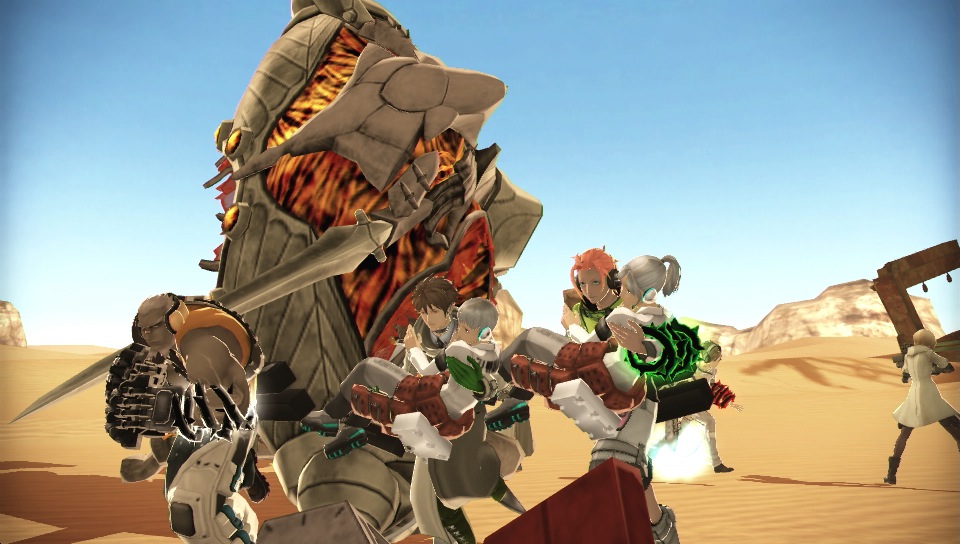 [Click for full-size image]
[Click for full-size image] -
Freedom Wars #8
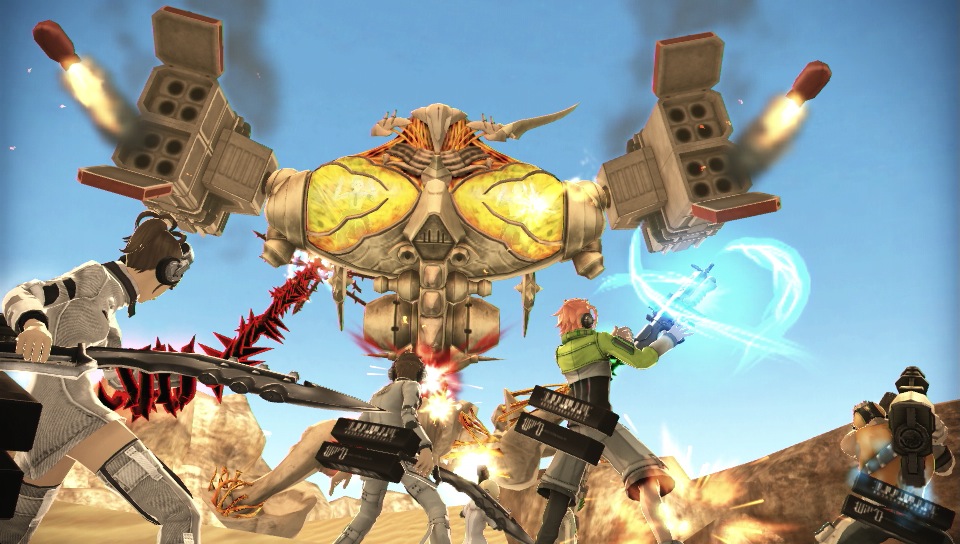 [Click for full-size image]
[Click for full-size image] -
Freedom Wars #9
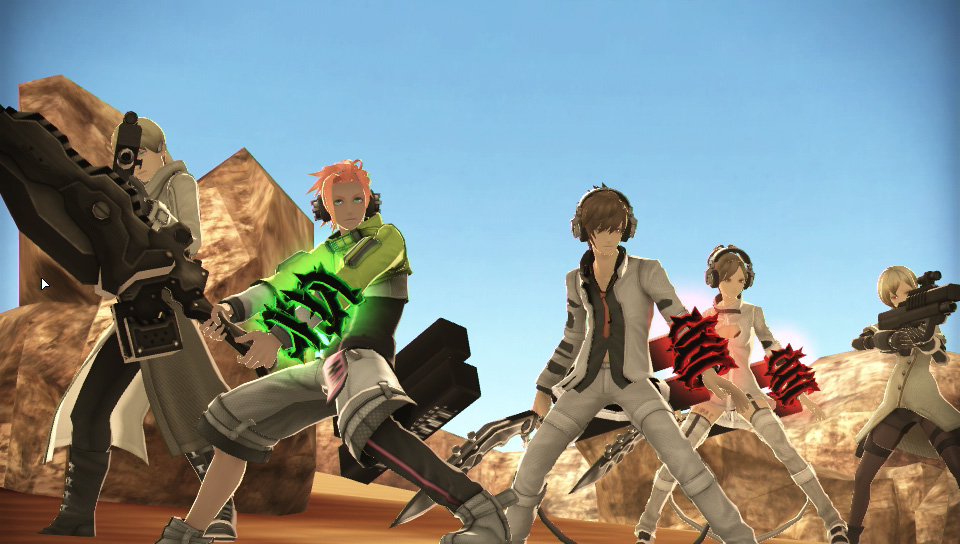 [Click for full-size image]
[Click for full-size image] -
Freedom Wars #10
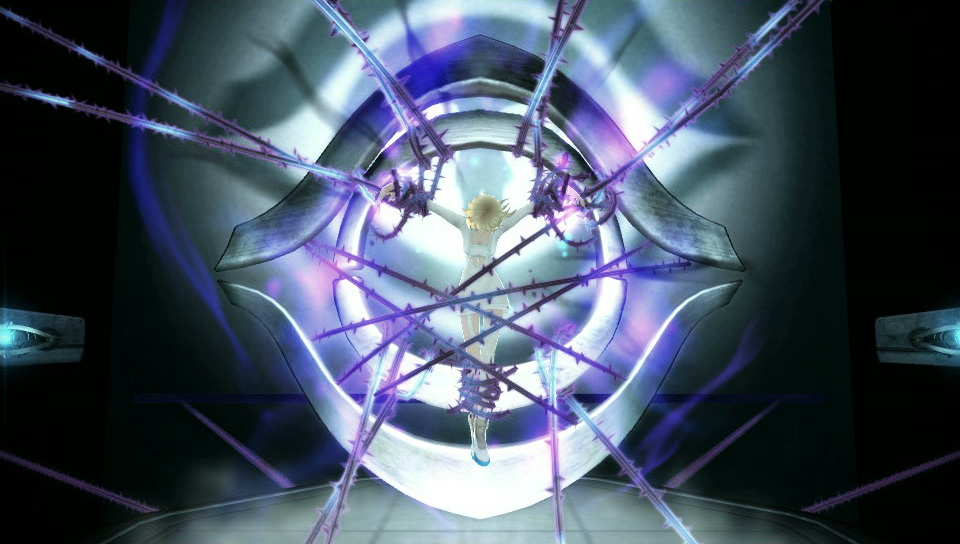 [Click for full-size image]
[Click for full-size image]
